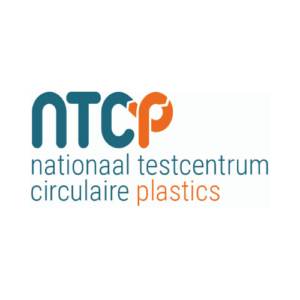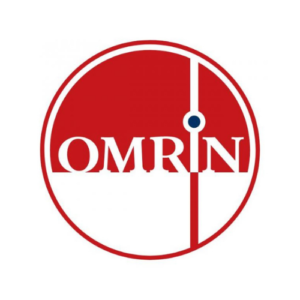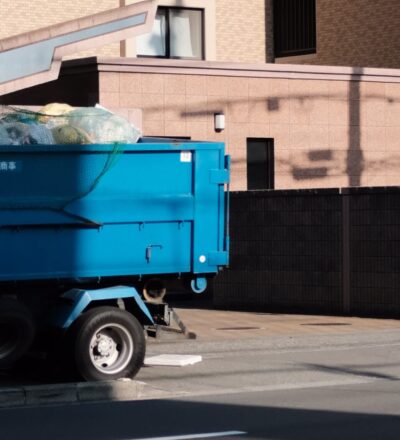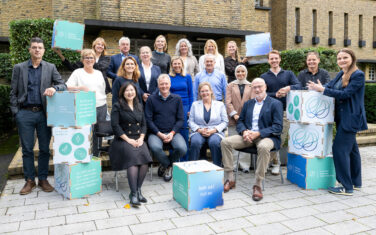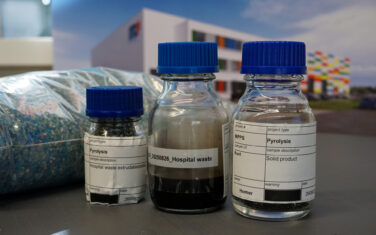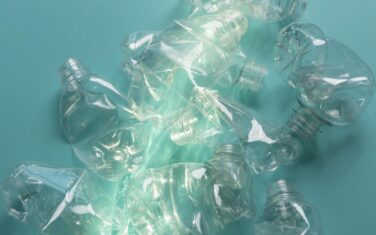In 2020, a staggering 29.5 million tonnes (Mt) of post-consumer plastic waste were collected in the EU, and only 19% of this was recycled. The Netherlands has fared slightly better, but still falls short of its recycling goals. To significantly contribute to reducing plastic waste and the dependency on fossil fuels, we must explore a new frontier in mechanical sorting. The Multipurpose Plastic Sorting project is born from this imperative need.
In short:
- Re-designing the approach for mechanical sorting to maximize recyclability
- Innovating radical mechanical sorting solutions through collaboration with technology providers both inside and outside the plastic recycling industry
- Creating new mechanical plastic sorting concepts from existing, underutilized techniques, targeting both current waste streams and valuable unrecycled materials
- Designing and building flexible, compact, and modular prototypes to demonstrate functionality
To shift in focus
In current plastic sorting facilities, the focus is on achieving the highest throughput. They are designed to process household waste streams, separating them based on material type and shape using sensors and cameras. However, they deliver output streams according to national standards, not according to specific or more demanding intended use specifications. This approach overlooks valuable waste streams and fails to meet the requirements of new recycling technologies. The field of recycling is evolving, with the intended use of plastic waste expanding due to emerging chemical and thermochemical recycling. The current emphasis on maximizing throughput must shift towards flexibility and quality to accommodate a broader array of recycling technologies.
By developing novel mechanical sorting concepts that are proven to be both more efficient and flexible, we will give possible direction to implementation of new mechanical sorting solutions, supporting European and Dutch goals to increase the use of recycled plastic in production.
Three use cases on mechanical sorting
In our project, we are addressing the challenge of increasing the circularity of plastics through specific, innovative use cases, focusing on improved sorting to optimize sorted quality. The three use cases are assessed within the project under the technical lead of NTCP:
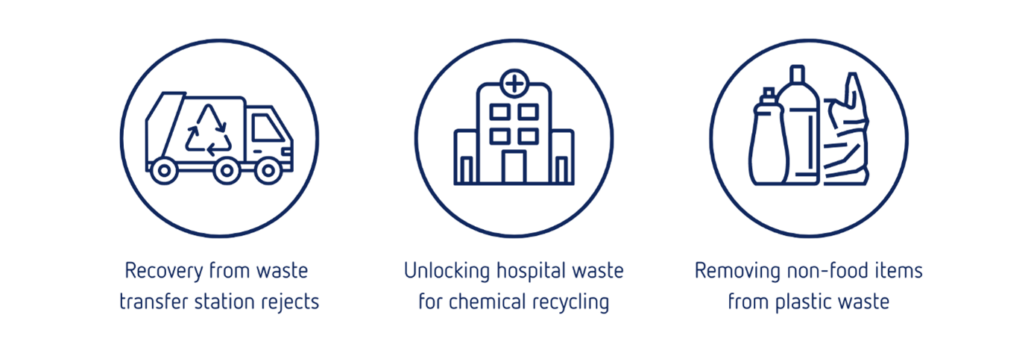
1. Recovery from waste transfer station rejects
Trucks carrying source-separated packaging enter a transfer station. If too many unwanted items are found during visual inspection, the full inspected batch is incinerated, including valuable materials. Our goal is to recover this valuable content. This use case is led by Midwaste.
2. Unlocking hospital waste for chemical recycling
Hospital waste, like other bulk (unconventional) plastic waste streams can become a feedstock for pyrolysis. The challenge is to remove objects that might disturb the process. We’re developing a solution to clean a selected waste stream. This use case is led by Sabic.
3. Removing non-food items from plastic waste
To achieve the use of recycled plastic for food-contact items, the first step is to ensure that the origin comes from food packaging. In this use-case we remove non-food packaging from mainly food-contact materials, aiming for mechanical recycling. This use case is led by Omrin and Danone.
Shared characteristics
These use cases share common characteristics:
- Unified approach: All employ one detection, identification, and classification system to handle both wanted and unwanted objects.
- Bulk waste streams: Each focuses on processing large volume and/or high-value waste streams.
- Cross-fertilization potential: The commonalities between these cases allow for shared insights and development.
Expected results
The project sets to have many design concepts from cross-industry ideation, drawing inspiration from examples like crop sorting machines or weed removal robots. However, within the project the final results will be:
- Functioning Prototypes: A working prototype will be created and tested for each of the use cases. If successful, it may evolve into a product for sorting plastic packaging waste, providing valuable exposure to both internal and external stakeholders.
- Test Data: Alongside the prototype, there will be comprehensive test data to evaluate its effectiveness. These insights may not only be pertinent to the specific prototype but could be applied more broadly to enhance existing sorting processes.
- Preparatory Plan: Additionally, a strategic plan will be prepared to guide the future steps needed for implementing the prototype on a larger scale across the waste industry. This foresight ensures that the project’s innovations are ready for practical application and broader impact.
Towards sustainable plastic management
The Multipurpose Plastic Sorting project represents a meaningful stride towards sustainable plastic management. If you wish to stay informed on the developments of this project and its broader impact, we invite you to stay informed through our LinkedIn page.
This is a project of the Circular Plastics Initiative, powered by ISPT and DPI.
You might also be interested in
Acknowledgement & partners
This project is co-funded with subsidy from the Topsector Energy by the Ministry of Economic Affairs and Climate Policy.



